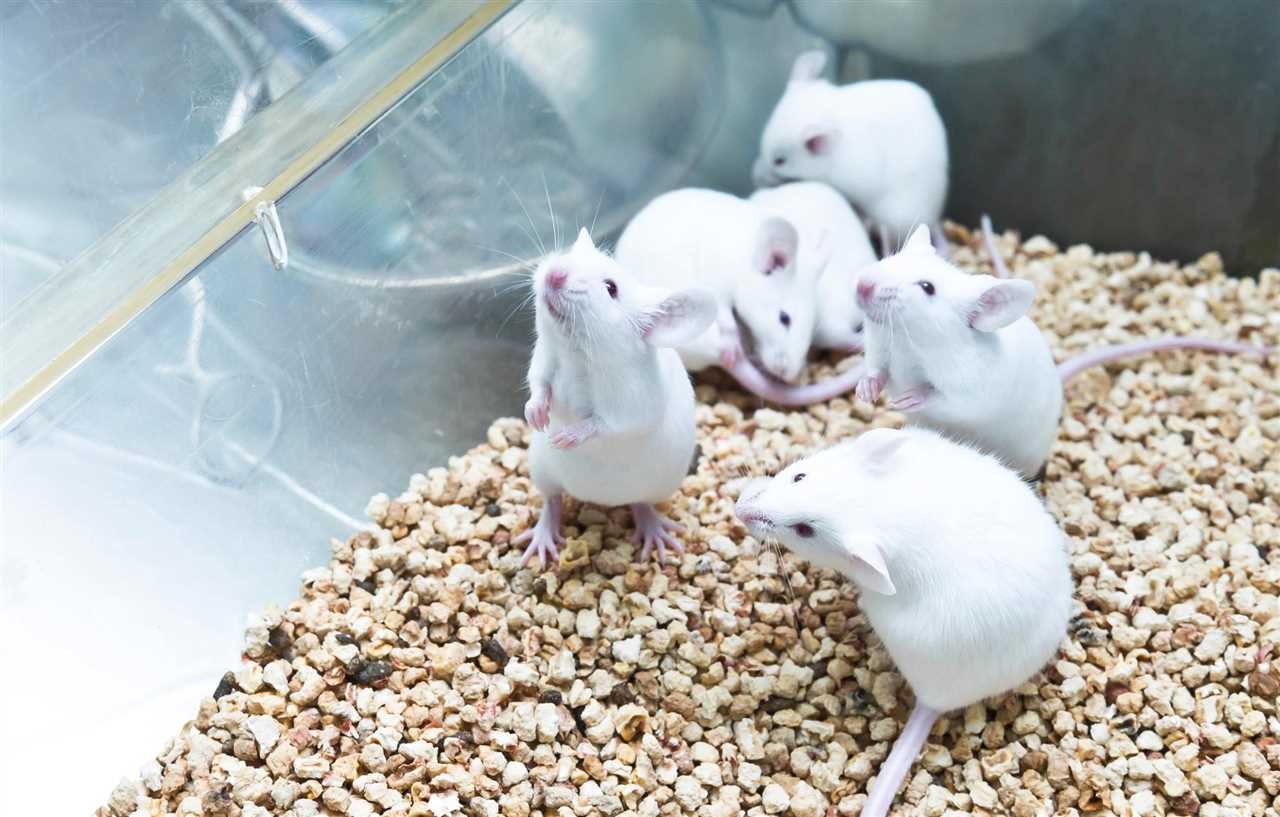
In the world of animal research, rodents have long been valuable subjects for studying various aspects of behavior and physiology. These small mammals provide scientists with unique insights into the intricate workings of stress, social behavior, and resilience. By observing and analyzing the responses of rodents to different stressors, researchers can gain a deeper understanding of how these factors impact their lives and well-being.
One area of particular interest is the social behavior of rodents under stressful conditions. When exposed to stress, rodents often exhibit changes in their social interactions, such as increased aggression or withdrawal from their social groups. These behavioral changes can provide valuable clues about the underlying mechanisms of stress and how it affects individuals within a social context.
Furthermore, studying the resilience of rodents in the face of stress can offer important insights into the factors that contribute to their ability to cope and adapt. Some individuals may show remarkable resilience, maintaining normal social behavior and functioning despite experiencing significant stress. Understanding the neurobiological and behavioral processes that underlie resilience in rodents can potentially inform strategies for promoting resilience in humans facing similar challenges.
In conclusion, rodents serve as invaluable models for exploring the complex interplay between stress, social behavior, and resilience. By studying their responses to stressors and observing changes in their social interactions, researchers can gain valuable insights into the mechanisms underlying these processes. Such knowledge has the potential to contribute to our understanding of stress-related disorders in humans and inform the development of effective interventions.
Understanding the Impact of Stress on Social Behavior
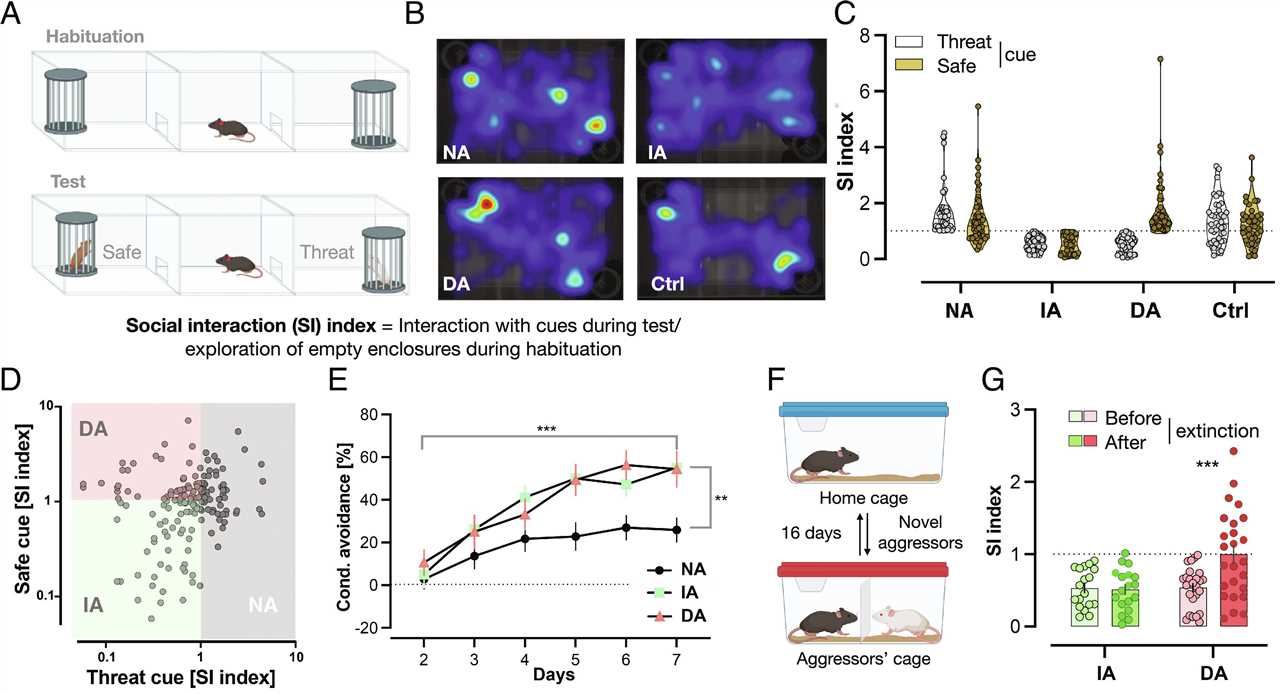
Stress is a common experience in the lives of both humans and rodents. It can have a significant impact on behavior, particularly social behavior. Rodents, such as mice and rats, are often used as models to study the effects of stress on social behavior due to their similarities to humans in terms of social organization and behavior.
Insights gained from studying rodents can provide valuable information about how stress affects social behavior in humans. For example, research has shown that chronic stress can lead to changes in social interactions, such as increased aggression or withdrawal from social interactions.
Additionally, stress can impact the formation and maintenance of social bonds. Rodents exposed to chronic stress may have difficulty forming new social connections or maintaining existing ones. This can have long-term effects on their overall well-being and resilience to future stressors.
Understanding the impact of stress on social behavior is important for several reasons. Firstly, it can help us better understand the underlying mechanisms that contribute to stress-related disorders, such as anxiety and depression. By studying how stress affects social behavior in rodents, researchers can gain insights into potential treatment strategies for these disorders.
Furthermore, studying the effects of stress on social behavior can shed light on the importance of social support in mitigating the negative effects of stress. Research has shown that social support can buffer the impact of stress, promoting resilience and well-being. By understanding the mechanisms through which social support affects stress resilience, we can develop interventions that enhance social support networks and improve mental health outcomes.
In conclusion, stress has a profound impact on social behavior in rodents and humans alike. Studying the effects of stress on social behavior in rodents can provide valuable insights into the underlying mechanisms and potential interventions for stress-related disorders. Additionally, understanding the role of social support in mitigating the effects of stress can inform strategies to promote resilience and well-being in individuals facing stressful situations.
The Role of Stress in Social Interactions

Stress plays a crucial role in social interactions among rodents. It affects their behavior and resilience, which in turn influence their ability to navigate social dynamics. Rodents exposed to chronic stress often exhibit altered social behaviors, such as reduced social interaction and increased aggression.
Stress can also impact the formation and maintenance of social bonds. Studies have shown that rodents exposed to stressors have difficulty forming strong social connections, leading to increased social isolation. This can further exacerbate the negative effects of stress, as social support is known to be important for resilience.
Furthermore, stress can influence the perception and interpretation of social cues. Rodents under stress may have a heightened sensitivity to social threats and exhibit hypervigilance in social situations. This altered perception can lead to defensive behaviors and avoidance of social interactions.
It is important to note that the effects of stress on social behavior and resilience in rodents can vary depending on various factors, including the duration and intensity of stress exposure, as well as individual differences in coping mechanisms. Understanding the role of stress in social interactions is crucial for gaining insights into the underlying mechanisms and developing interventions to promote resilience and well-being in both rodents and humans.
Effects of Chronic Stress on Social Behavior
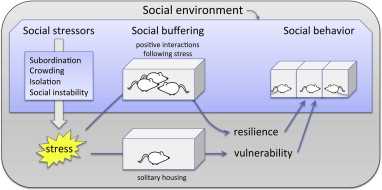
Chronic stress can have a significant impact on social behavior in rodents. Research has shown that rodents exposed to chronic stress exhibit changes in their social interactions and relationships with other members of their group.
One of the most common effects of chronic stress on social behavior is social withdrawal. Stressed rodents often exhibit reduced interest in social interactions and may spend less time engaging with other members of their group. This can lead to a decrease in social bonding and cohesion within the group.
Additionally, chronic stress can also alter the way rodents communicate with each other. Stressed rodents may exhibit changes in their vocalizations, body language, and scent marking behaviors, which can disrupt the normal communication patterns within the group. This can lead to misunderstandings and conflicts between group members.
Furthermore, chronic stress can impact the formation and maintenance of social hierarchies in rodent groups. Stressed rodents may have difficulty establishing their rank within the group or maintaining their position in the social hierarchy. This can lead to increased aggression and competition among group members.
Resilience to the effects of chronic stress on social behavior can vary among rodents. Some individuals may be more resilient and able to maintain normal social interactions despite exposure to chronic stress, while others may be more susceptible to the negative effects of stress on social behavior.
In conclusion, chronic stress can have a profound impact on social behavior in rodents. It can lead to social withdrawal, disrupt communication patterns, and affect social hierarchies within rodent groups. Understanding the effects of chronic stress on social behavior in rodents can provide valuable insights into the mechanisms underlying stress resilience and inform strategies for promoting social well-being in humans.
Stress-Induced Changes in Social Hierarchies
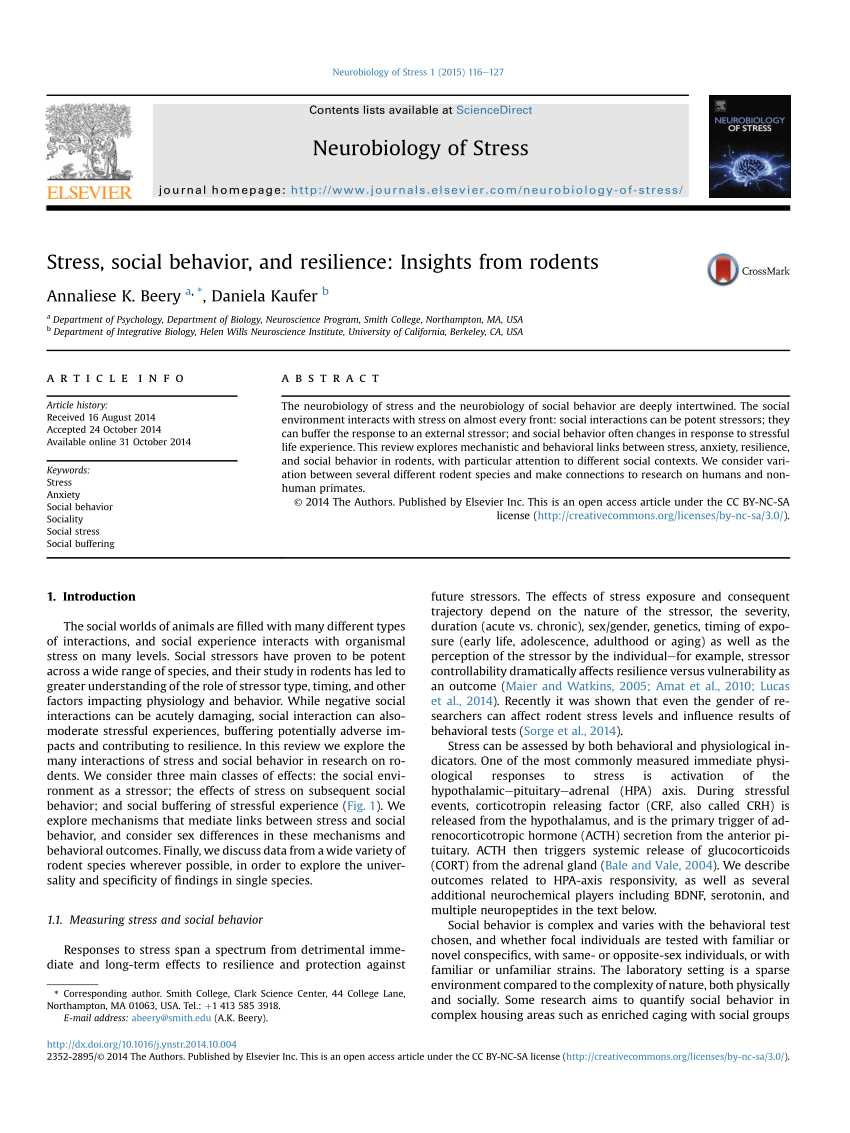
Rodents are often used as models to study the effects of stress on social behavior and resilience. Stress can have a significant impact on the hierarchical structure within rodent communities.
When rodents experience stress, such as through exposure to predators or social instability, it can lead to changes in their social hierarchies. Dominant individuals may become more aggressive and assertive, while subordinate individuals may become more submissive and avoidant.
These stress-induced changes in social hierarchies can have profound effects on the behavior and interactions of rodents within their communities. For example, dominant individuals may exhibit increased territoriality and aggression towards subordinates, while subordinates may display heightened anxiety and decreased social engagement.
Understanding the mechanisms behind stress-induced changes in social hierarchies is crucial for gaining insights into the effects of stress on social behavior and resilience in rodents. By studying these changes, researchers can uncover potential targets for interventions aimed at mitigating the negative effects of stress on social dynamics and promoting resilience.
Resilience Mechanisms in Rodents
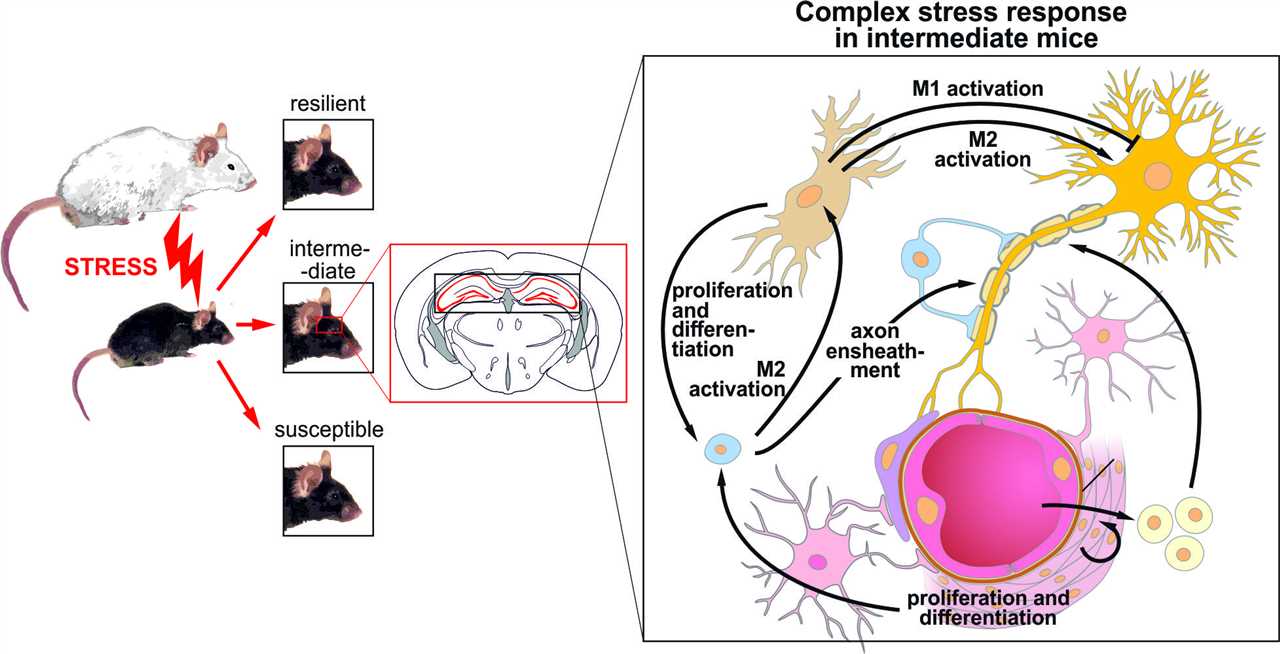
Stress is a common phenomenon experienced by rodents in their natural environment. It is well-known that exposure to stress can have a significant impact on the behavior of these animals. However, recent research has shed light on the resilience mechanisms that allow rodents to cope with stress and maintain their normal behavioral patterns.
Insights from studies on rodents have revealed that behavioral adaptations play a crucial role in resilience. When faced with stressful situations, rodents exhibit a variety of behaviors that help them navigate through the challenges. These behaviors include increased exploration, social interaction, and cognitive flexibility.
One of the key insights from these studies is the importance of social interaction in promoting resilience. Rodents that have access to social support, such as being housed with conspecifics, show greater resilience to stress compared to those that are isolated. Social interaction not only provides emotional support but also facilitates the sharing of resources and information, which can help rodents navigate through stressful situations more effectively.
Another resilience mechanism observed in rodents is increased exploration. When rodents are exposed to stress, they often exhibit heightened exploratory behavior, venturing into new environments and actively seeking out novel stimuli. This exploratory behavior is thought to be a coping mechanism that allows rodents to distract themselves from the stressor and find alternative sources of reward and stimulation.
Cognitive flexibility is also a crucial resilience mechanism in rodents. Studies have shown that rodents are capable of adapting their behavior and cognitive processes in response to stress. This flexibility allows them to switch between different strategies and problem-solving approaches, enabling them to overcome the challenges posed by stress and maintain their normal behavioral patterns.
In conclusion, rodents have developed a range of resilience mechanisms to cope with stress and maintain their normal behavior. Insights from studies on these animals have highlighted the importance of social interaction, increased exploration, and cognitive flexibility in promoting resilience. Understanding these mechanisms can provide valuable insights into how humans can better cope with stress and develop strategies to enhance resilience.
Genetic Factors Influencing Resilience
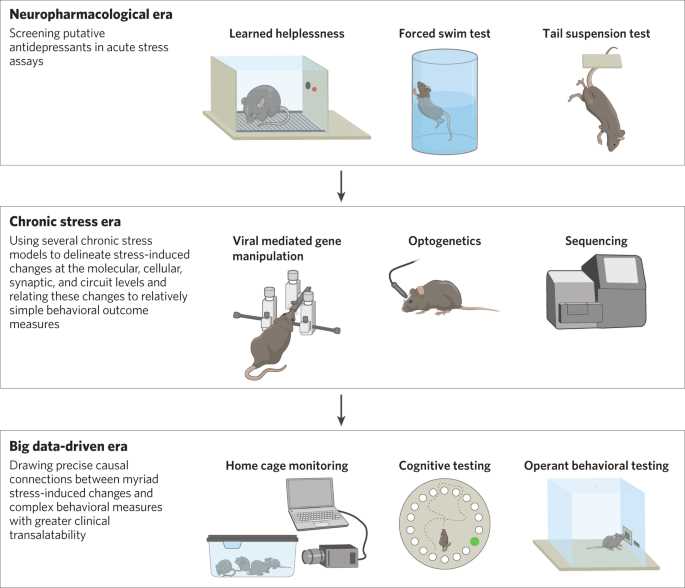
Resilience, the ability to adapt and recover from stressful situations, is a complex trait that varies among individuals. While social and environmental factors play a significant role in determining resilience, recent research has shed light on the genetic factors that influence this trait in rodents.
Studies have shown that certain genes are associated with increased resilience in rodents. One such gene is the brain-derived neurotrophic factor (BDNF) gene, which is involved in the growth and survival of neurons. Rodents with higher levels of BDNF have been found to exhibit greater resilience in the face of stress.
Another gene that has been linked to resilience is the serotonin transporter gene (5-HTT). This gene is responsible for regulating the availability of serotonin, a neurotransmitter that plays a crucial role in mood regulation. Rodents with a specific variant of the 5-HTT gene have been found to be more resilient to social stressors.
Insights from these genetic studies have not only provided a better understanding of the biological mechanisms underlying resilience but also have implications for human research. Similar genetic factors have been found to be associated with resilience in humans, suggesting that findings from rodent studies may be applicable to humans as well.
In conclusion, genetic factors play a significant role in determining resilience in rodents. The discovery of genes such as BDNF and 5-HTT has provided valuable insights into the biological basis of resilience. Further research in this area may lead to the development of new therapeutic interventions for stress-related disorders in both rodents and humans.

I am Patrina de Silva, a psychologist and mental health blogger in Sri Lanka. After obtaining psychology degrees from the University of Colombo and Monash University, I returned home to work as a counselor while also starting the popular blog “Pressy but Happy” to provide advice on psychological issues. Over the past decade, my empathetic articles have made my blog a leading mental health resource in the country. In addition to writing, I maintain a private therapy practice, frequently volunteer counseling time, and conduct seminars, driven by my passion for destigmatizing mental illness and educating the public on the mind-body connection. I strive to be an influential voice in my field through my compassionate approach.
